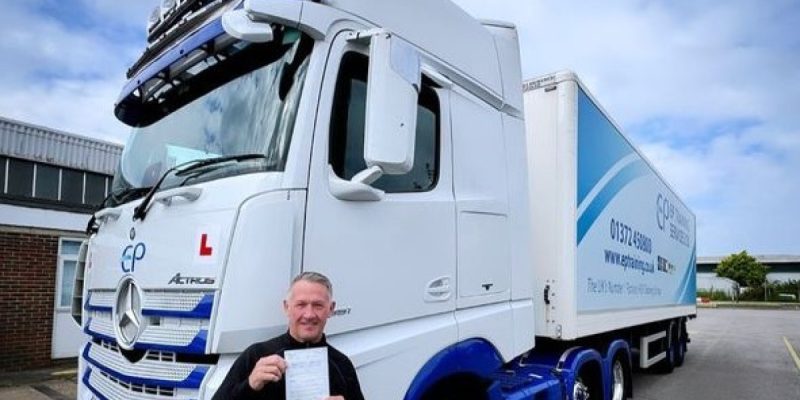What Is Operators Licence? Everything You Need to Know

In the UK and many other countries, businesses that operate certain types of vehicles for commercial purposes are required to hold an operator’s licence. This licence ensures that companies comply with legal and safety standards when using vehicles to transport goods or passengers.
Whether you’re running a haulage company, a delivery service, or a passenger transport business, understanding the purpose and requirements of an operator’s licence is essential.
In this article, we’ll explain what is operators licence, who needs one, how to apply, and the obligations that come with it.
What Is Operators Licence?
An operator’s licence (often referred to as an “O-Licence”) is a legal document issued by a government authority that allows businesses to operate commercial vehicles. It ensures that operators meet safety, maintenance, and legal standards when transporting goods or passengers.
Types of Operator’s Licences in the UK
- Goods Vehicle Operator’s Licence (GVOL): Required for vehicles over 3.5 tonnes used to transport goods for business purposes.
- Passenger Transport Operator’s Licence: Needed for vehicles carrying nine or more passengers.
Who Needs an Operator’s Licence?
Goods Transport Businesses
Any business operating vehicles over 3.5 tonnes to carry goods for hire, reward, or internal purposes requires a Goods Vehicle Operator’s Licence.
Passenger Transport Services
Companies running vehicles with nine or more passenger seats, such as buses, coaches, or minibuses, need a Passenger Transport Operator’s Licence.
Exceptions
- Vehicles under 3.5 tonnes.
- Vehicles used for personal (non-commercial) purposes.
- Agricultural vehicles and equipment (specific exemptions apply).
Why Is an Operator’s Licence Important?
Legal Compliance
Operating without the necessary licence can result in heavy fines, vehicle seizures, or legal action.
Safety Assurance
The licence ensures that vehicles are regularly maintained, drivers are qualified, and safety standards are upheld.
Professional Standards
Having an operator’s licence demonstrates that a business is legitimate and committed to high standards of service.
Types of Goods Vehicle Operator’s Licences in the UK
The UK offers three types of Goods Vehicle Operator’s Licence, depending on the nature of your business:
| Type | Purpose |
| Restricted Licence | For businesses using vehicles to transport their own goods (not for hire or reward). |
| Standard National | For transporting goods in the UK for hire, reward, or internal use. |
| Standard International | For transporting goods in the UK and internationally for hire or reward. |
How to Apply for an Operator’s Licence
Check Eligibility
To apply for an operator’s licence, you must:
- Have a registered business.
- Prove financial capability to maintain vehicles (e.g., bank statements).
- Meet the “good repute” standard, meaning you have no relevant convictions.
Submit an Application
- Apply through the relevant authority (e.g., Traffic Commissioners in the UK).
- Provide details about your business, vehicles, and transport manager (if applicable).
Pay the Fee
- Application fees vary depending on the type of licence. In the UK, the fee for applying is typically £257, with an annual continuation fee of £401.
Advertise Your Application
- You must publish your licence application in a local newspaper to inform the public and allow for objections.
Await Approval
- The approval process can take 9–12 weeks, during which the authorities assess your compliance with the requirements.
Your Obligations as an Operator Licence Holder
Once you obtain an operator’s licence, you’re legally required to meet ongoing obligations:
Vehicle Maintenance
- Regularly inspect and maintain all vehicles.
- Keep accurate records of maintenance checks.
Driver Compliance
- Ensure drivers hold valid licences and are properly trained.
- Monitor drivers’ working hours and adherence to tachograph regulations.
Operating Centres
- Provide a safe and secure location to park vehicles.
- Ensure the operating centre meets environmental and legal requirements.
Reporting Changes
- Inform the authorities of changes to your business, vehicles, or operating centre.
- Report any legal convictions relevant to your business.
Penalties for Non-Compliance
Failing to comply with operator’s licence requirements can result in:
- Fines of up to £5,000.
- Suspension or revocation of your licence.
- Disqualification from holding a licence in the future.
- Legal action or criminal charges for severe violations.
Benefits of Holding an Operator’s Licence
Legitimacy and Trust
Holding an operator’s licence shows customers and partners that your business is compliant, professional, and reliable.
Business Opportunities
With a valid licence, you can expand your services, secure larger contracts, and operate legally across borders (for international licences).
Risk Reduction
Ensuring compliance with safety and legal standards minimizes the risk of accidents, fines, or legal issues.
Conclusion
An operator’s licence is a vital document for businesses operating commercial vehicles, ensuring legal compliance, safety, and professionalism. Whether you’re transporting goods or passengers, obtaining the appropriate licence is essential for building trust with customers and avoiding legal issues.
By understanding the types of licences, application processes, and ongoing obligations, you can run your business confidently and efficiently.
Ready to start? Begin your application today and ensure your business operates legally and responsibly.
FAQs
1. What is an operator’s licence?
An operator’s licence is a legal permit required to operate commercial vehicles for transporting goods or passengers.
2. Do I need an operator’s licence for a van?
Vans under 3.5 tonnes typically do not require an operator’s licence unless used for specific commercial purposes.
3. How long does it take to get an operator’s licence?
The application process usually takes 9–12 weeks.
4. Can I operate internationally with a UK licence?
Only if you hold a Standard International Licence, which allows cross-border operations.
5. How do I renew my operator’s licence?
You can renew your licence by paying the continuation fee and submitting any required updates to the relevant authority.
Also read: How to Start a Home Renovation Company: A Step-by-Step Guide











